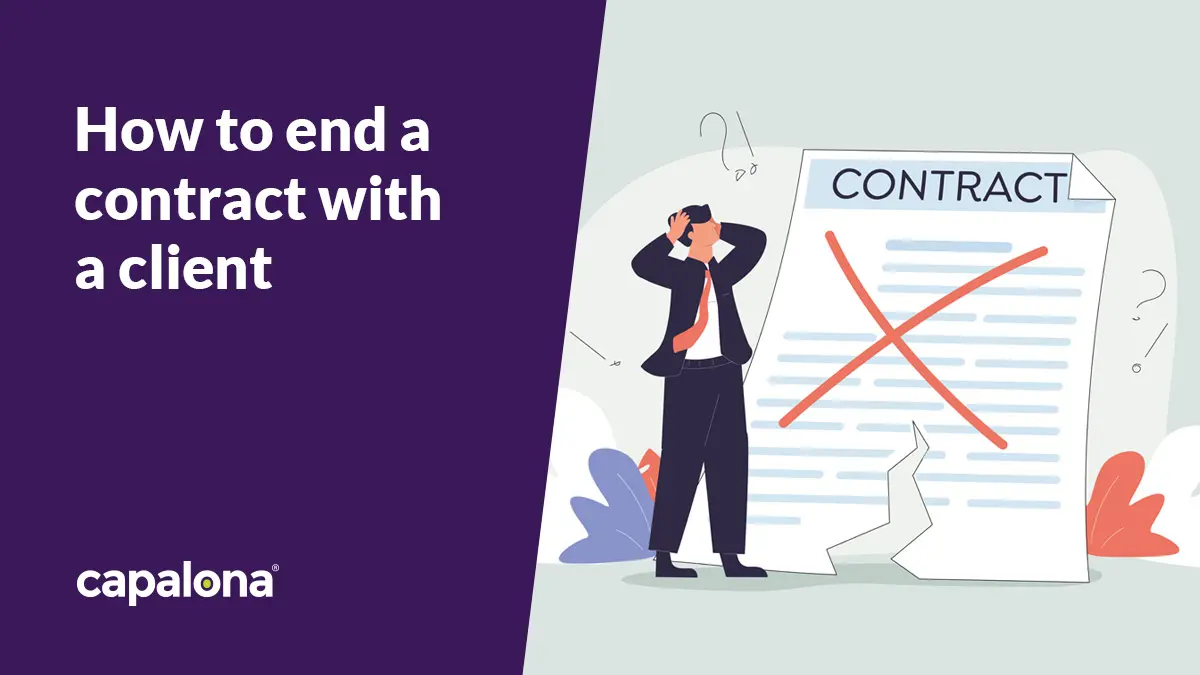In any business agreement, a contract should be in place to protect both parties. The contract should outline the obligations and responsibilities of each party and set clear expectations so that if one party reneges from the contract terms, the other party is protected from backlash or other ramifications.
This blog explores why you might want to consider a business contract and the process of creating one.
Reasons why a business contract is essential
A business contract outlines the obligations of both parties so everyone is aware of their responsibilities. Having a legally binding contract can:
- Prevent disputes by setting out the terms of the agreement
- Offer legal protection as the other party can pursue legal recourse and enforce the contract
- Help clarify and provide structure to the business partnership (i.e. sharing payment terms, deliverables and timelines)
Is a contract and agreement the same thing?
No, a contract and an agreement are separate things. Although a contract is classed as an agreement, not every agreement is a contract. A contract legally binds both parties, but that’s not the same as an agreement. An agreement can be verbal or written and does not have the legal implications of a contract.
What should you include in a business contract?
Business contracts can be used when hiring a new employee, working with a new supplier or working on a project between your business and a client. Although the working relationship might differ, the reason for the contract remains the same: to protect both parties and clearly outline expectations.
With that in mind, here are five things you should include in a business contract.
1. Include legal names and contact details
Before you even start with the contract details, collect all party information, including legal names, company names, and contact details, including your business premises. These are fundamental details that every contract begins with.
2. Outline the project terms and conditions
It’s essential to include the scope of work you plan to carry out. What you include in this section is very individual to your industry and the type of product or service you’re delivering.
For example, if you’re tasked with managing your client’s social media channels, you need to think about the terms you want your client to agree on. Ask yourself things like:
- How many times a week are you posting, and on what channels?
- Are you in charge of responding to customer queries over social media?
- What kind of KPIs will you agree on?
- What does the client want from your social media campaigns — more followers or conversations, increased engagement, or brand awareness?
Make sure to include details about service or product delivery dates and the price of the goods.
Be as specific as possible in this section. The contract is here to establish the roles and responsibilities of both parties so the client knows exactly what they’re getting for their money, and you know exactly what you’re expected to deliver.
Contracts play an important role in business, so carefully mull over all the details.

3. Layout payment terms
Getting paid is a fundamental part of business; it keeps your cash flowing and your business operating smoothly. So, figuring out the payment terms is essential. You might want the customer to pay on receipt of the invoice or in milestones that align with your project deliverables, or you might issue them a standard 30-day invoice.
Some larger customers might have set payment terms, so check this and make sure you’re happy to agree to them before proceeding.
Things you’ll want to include in this section:
- Payment terms
- How will you invoice them, i.e. monthly, quarterly, by milestone, etc.?
- Confirm details of where to send the invoice to include them in the contract (this might be an accounting-specific email or your company contact)
- What kind of payments you accept (you might offer the client payment by digital link, BACs, PayPal, etc.)
4. Contract termination details
You can consider adding a section about what happens if either party wants to terminate the contract, the notice they must give and how they must give it. I.e., if you want one month’s notice via email, you need to say as much.
Include which scenarios bypass the notice period, i.e., either of you doesn’t fulfil your contractual obligations, for example, the client terminates because you fail to post the agreed number of times each week.
5. Agree on who owns what intellectual property
Let’s say you’ve designed the client a logo. The client will only own the copyright of the image once they’ve paid in full for it. That means you’re entitled to keep hold of the copyright if they don't pay for it.
If you want to display your work in a portfolio, that’s usually allowed, but include it in your client contract just in case.
P.S. Find out how to protect your intellectual property here.
What should you include in a business contract?
After you’ve written the contract, seek free business legal advice and ask them to look over your contract. This process allows you to suggest amends to legal jargon or recommend additional elements.
Once you’re both happy with the contract, it’s time to sign it. As soon as both parties sign it, it becomes legally binding, and you must both set out to achieve what’s outlined and take your obligations seriously.
If you want to grow your business this year, find and compare eligible business loans with our free loan comparison tool. Tell us what you’re looking for, and our intelligent system will match you with suitable loans.
Getting a quote is quick and easy and won’t affect your credit score.






